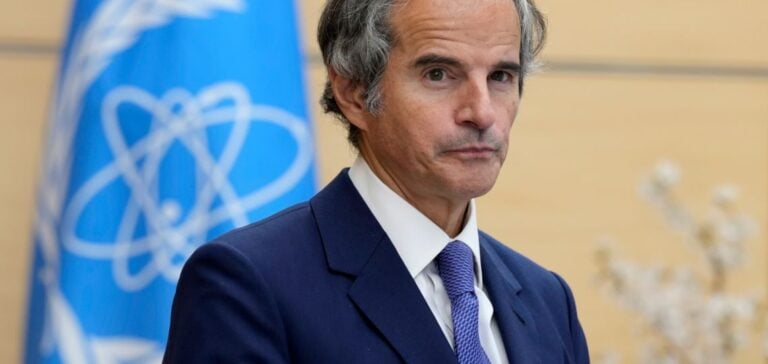Iran has reached a worrying milestone in the development of its nuclear program. According to a confidential report from the International Atomic Energy Agency (IAEA), Tehran has agreed to intensify monitoring measures at its Fordo site. This decision follows a significant acceleration in uranium enrichment, reaching 60%, a level close to the threshold required for nuclear weapons production.
In December, Tehran activated new centrifuges at the Fordo site, increasing monthly production estimates to over 34 kilograms of enriched uranium, compared to 4.7 kilograms during the previous evaluation period. This acceleration puts Iran on the brink of a critical threshold, sparking serious concerns among major global powers.
A Fragile Agreement and Rising Tensions
This escalation is part of Iran’s gradual withdrawal from its commitments since 2018, following the United States’ withdrawal from the 2015 nuclear agreement, known as the JCPOA (Joint Comprehensive Plan of Action). The agreement strictly limited uranium enrichment to a level of 3.67%. In response to the reintroduction of severe economic sanctions, Iran has progressively abandoned its commitments while defending its right to nuclear energy for civilian purposes.
Despite this official justification, international experts highlight that the current enrichment level of 60% dangerously approaches the 90% required to produce a nuclear weapon. Consequently, the IAEA has demanded stricter inspections to ensure the program remains within declared limits and to prevent any diversion of nuclear materials for military use.
Strong International Reactions
Major European powers, including France, Germany, and the United Kingdom, have expressed deep concern over this development. In a letter to the United Nations Security Council, these nations urged Iran to immediately halt this escalation. They have not ruled out invoking the sanctions mechanism provided by the 2015 agreement to curb Iran’s nuclear advances.
The European Union has also condemned the situation. According to Anouar El Anouni, spokesperson for the EU diplomatic service, “enriching uranium to levels close to military-grade is extremely concerning.” This statement reflects the growing tensions between Iran and Western powers, complicating any efforts to resume negotiations.
Balancing Civil and Military Intentions
Tehran continues to assert that its nuclear program is intended for civilian purposes, particularly for electricity production. However, this stance is increasingly questioned by the international community, which fears Iran may be covertly developing a military capability.
This situation raises numerous questions about the future of diplomatic relations and the measures the international community will take to prevent nuclear proliferation in an already volatile region.






















